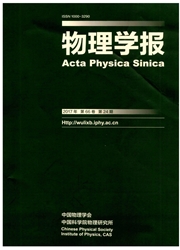

 中文摘要:
中文摘要:
针对水声正交频分多址(OFDMA)上行通信中用户导频数量少、分布不均匀,导致传统内插信道估计方法产生误码平层的问题,提出一种稀疏信道估计与导频优化方法.基于压缩感知(CS)理论估计稀疏信道冲激响应,并依据CS理论中测量矩阵互相关最小化原理,提出基于随机搜索的导频图案和导频功率联合优化算法.仿真结果表明,所提方法在不同多径扩展信道下的性能均优于基于线性内插的最小二乘估计、未经导频优化的CS信道估计以及单纯基于导频图案优化的CS信道估计.水池实验分别验证了交织式和广义式子载波分配的水声OFDMA上行通信性能,在接收信噪比高于10 d B时利用所提方法实现了两用户接入的可靠通信.
 英文摘要:
英文摘要:
Considering that the conventional channel interpolation method with sparse and irregular spaced pilots will lead to an error floor in underwater acoustic(UWA) orthogonal frequency division multiple access(OFDMA) uplink communications, a method for sparse channel estimation and pilot optimization is proposed in this paper. A compressed sensing(CS) algorithm is utilized for sparse channel impulse response estimation, which performs well in sparse and irregular spaced pilots and significantly decreases the channel estimation error. Besides, the pilots' pattern and power joint optimization algorithm based on the random search technique is proposed for the minimum mutual coherence criterion in CS theory, which further improves the performance of CS estimation algorithm. During each iteration step,we randomly pick a pilots' pattern from the subcarrier index set and a pilots' power subset from the available power set. Then we perform this step iteratively within a certain searching time. Finally, the local optimal solution of the objective function for minimizing mutual coherence is considered as the feasible pilots' pattern and power. Simulation results show that the convergence performance of the pilots' pattern and power joint optimization algorithm is much better than that of the pilots' pattern optimization algorithm. Furthermore, the channel estimation error of the proposed method is much lower than that of conventional least-squares channel estimator based on linear interpolation,CS channel estimator without pilot optimization, and CS channel estimator merely with pilots' pattern optimization in channels of different multipath delay spreads. Finally, performance of the proposed method is demonstrated in the UWA uplink OFDMA systems with interleaved and generalized carrier assignment schemes respectively in the two-user case in a pool experiment. Experimental results show that the proposed method decreases dramatically the bit error rate in both carrier assignment schemes, and simultaneou
 同期刊论文项目
同期刊论文项目
 同项目期刊论文
同项目期刊论文
 期刊信息
期刊信息
